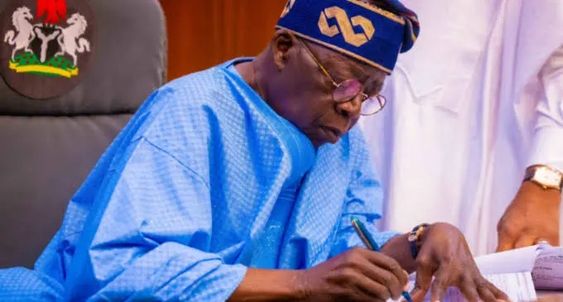Headlines
BREAKING: President Tinubu Sends National Minimum Wage Bill to National Assembly

President Bola Tinubu submitted the National Minimum Wage Bill to the National Assembly on Tuesday, for deliberation and possible enactment into law.
Following an agreement reached last Thursday between the President and Organised Labour leaders, Nigerian workers will now receive a new national minimum wage of ₦70,000.
After months of unsuccessful discussions between Labour representatives and a government-appointed tripartite committee on minimum wage, the agreement was reached through a series of negotiations between Labour leaders and President Tinubu.
In January, the President formed a committee comprised of representatives from state and federal governments as well as the Organised Private Sector (OPS). The proposed minimum wage by this committee was ₦62,000, while initially Labour had demanded ₹250,000 due to rising inflation and living costs following removal of petrol subsidy which made it difficult for them to sustain with presently given wages set at₹30.00K.
Read Also: Ndume Criticizes N70,000 Minimum Wage: “Can Only Buy a Bag of Rice
Although initially demanding ₦250,000, Labour ultimately agreed to the President’s offer of ₦70,000. Nigeria Labour Congress (NLC) President Joe Ajaero clarified that while rejecting a conditional proposal involving an increase in petrol prices and a minimum wage hike to ₦250,000 offered by the government; however they accepted the revised amount as it included reviewing of minimum wage every three years instead of five.
President Tinubu fulfilled his promise made in his Democracy Day speech on June 12, 2024, by submitting the Wage Bill 2024 to both chambers of the National Assembly. The bill pertains to a new national minimum wage and is considered as an Executive Bill for consideration.
The intention behind this legislative measure is to legitimize the recently negotiated salary contract and offer Nigerian laborers a dependable source of income in the face of enduring economic obstacles.
